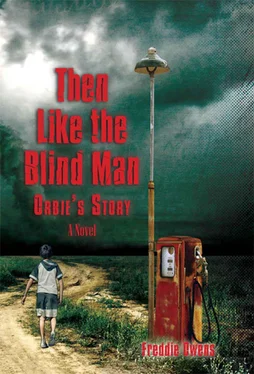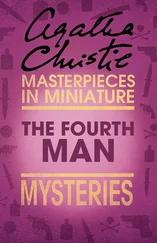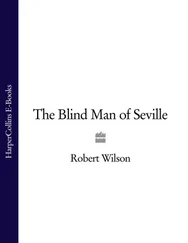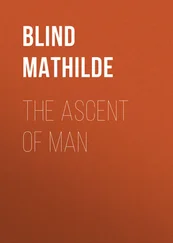Granpaw, still laughing, got up from the table. He took one limping step and looked around at the kitchen. “Where’s my hat, Mattie?”
With her spoon, Granny pointed toward the door. “Out there where you left it, I reckon. Get on now!”
“Cain’t nobody have no fun around here.” Granpaw picked up the pouch and ditch-stepped it over to me. “Looky here boy. Ain’t nothin’ in that but chewing tabacco.” He opened the pouch and held it down for me to see. Sure enough that’s all there was — just a gnarled hunk of black chewing tobacco curled in there like a snake with one end bit off.
“Now ain’t that something to be scared of?” Granpaw winked and cupped the top of my head with a hand thick as a baseball mitt. I tried to jerk loose but the hand was too strong. Looking right down into my eyes, he said, “You down here with us hillbillies now son, and ain’t a one of us got a lick of sense. Why, if we did, we wouldn’t know what to do with it!” He threw back his head, laughing. Then a tired sound came in his voice. “I reckon you’ll learn that soon enough though.” He let go of my head, raised himself on one leg and let his body down on the other. He went out the screen door that way, went out and let it slam.
I watched him standing out there on the porch, looking up at the sky, the palms of his hands on his butt, the elbows stuck out in back of him. “Yep, he’ll learn. He’ll learn soon enough,” Granpaw said to the sky. Then he walked his bum leg down the steps and was gone.
Granny set her cup with the spoon in a big empty tub and started piling Granpaw’s dirty dishes. “Pay Strode no mind, youngun. Going on about them black snakes. You wouldn’t think he was a preacher the way he does. Ornery old devil.”
I stared out the door Granpaw had gone. The barn sat out there with its main and two hay loft doors wide open — a black skull laughing at the day.
Who did he think he was anyhow? Scaring me like that?
Granny wiped egg yellow and brown coffee circles off the top of the table. Then she grabbed a hot kettle from the stove, brought it over to the tub and poured hot water in. A cloud of steam rushed up to the ceiling and crawled away. “We won’t have to bother with him now no how, this your first day and all.” She began ladling cold water into the tub from a bucket by the door. “You haven’t said two words since you been down here. What you been doing up in Detroit?”
“Nothing, Granny. Playing.”
“Playing at what?”
“Ball. With my friends.”
Granny busied herself over the dishes. “They’s kids down here too you know.”
“No there ain’t,” I said.
“Who said they ain’t?”
I looked at my plate. Two orange egg-eyes looked back. “Momma,” I said.
“She don’t know. She ain’t been around to know.” Granny stood now, toweling off her hands. “How come you so quiet? You never used to be.”
“I’m thinking Granny.”
“Thinking?” Granny laughed. “You too young to be thinking. You remind me of some old farmer a worrying over his crops.”
I poked one of the eggs and watched the orange run out. “I can’t eat these Granny. I ain’t hungry.”
Granny reached down and got a hold of my plate. Her white hair was pulled straight back, gathered on either side into pincushion-sized buns. One white strand floated out over her ear like a stray feather. “Go on outside then. The hogs’ll eat these and be thankful.” She dumped the eggs into a dented bucket and set my plate off to the side. “I’ll finish these dishes and we’ll go. We got a lot to do, you and me. Picking them blackberries.”
I left my dump truck and Granpaw’s cross under the table and went out onto the back porch. I put my hands in my back pockets and looked up at the sky like Granpaw. I couldn’t see the sun but I knew it was up there — somewhere behind the blinding white clouds. Cows decorated with splotches of white on black grazed the hillside above the barn. Pigs sniffed and snuffled inside a fenced yard near the house. A few lay sleeping in the shade of a little blue and white egg-shaped trailer that squatted in the tall weeds next to the fence. There was a chicken yard too, and a foreshortened wagon road that ended at the barn, which separated the chicken yard from the pig yard, two red clay tracks with a grassy hump down the middle.
“Orbie!” Granny called. Through the screen door I could see her still picking up utensils and wiping the table, sending out her words while she worked. “You be careful about that well now! Storm blowed the roof cockeyed and I think some of them stones is loose. I don’t want you falling in.”
“Okay Granny,” I said.
“We’d be worried to death, not knowing where you’d gone off to.”
“Okay.” Already I was beginning to sweat. I went down the steps and out along the side of the house. Grasshoppers were flying every which way over the patchy grass yard, bright black wings snapping like cellophane. A weather-warped rain barrel leaned under a pipe from the roof, empty and smelling of mold. I went on out to the front yard. Granny’s Jesus Tree was out there, just a few feet away from the house, twisting up out of the ground like a bunch of ropes tied together; its thorny crown was no higher than the overhang that went out over the porch.
A faded picture of Jesus Granny had found at the Circle Stump flea market was wedged in between the branches. It was dented on one corner, washed out looking and stained with rainwater. It showed Jesus lying face down on a thick stone cross rising slantwise out of what looked like a stormy, though faded, yellow sea. Yellow waves lashed at Jesus’ feet, and a washed out angry sky swirled overhead. His back was all bony and gashed and bleeding, and His faded hands were driven through with thick gray spikes. His face lay flat against the stone, and though I looked for it, I could see no love in his eyes anywhere, just misery and gloom. Didn’t look to me like He could save himself let alone the world.
Across the gravels of Bounty Road I could see Old Man Harlan’s store. Old Man Harlan’s real name was Nealy. Nealy Harlan. The store looked about the size of a small garage but with a porch and a door and a window on the front, white with red trim. Up the hill stood the big house where Old Man Harlan lived with his hunchback cousin, Bird Pruitt.
Bounty Road went in front of Old Man Harlan’s house and down past the store where it crossed Nub Road, also gravel. That place, where the roads came together, was called Harlan’s Crossroads; called that because Old Man Harlan owned all the land around it — the store, Granny and Granpaw’s place, the graveyard where Daddy was buried and the corner Granpaw had his tobacco on.
Down from the Jesus Tree and closer to the road sat Granny and Granpaw’s well, above it a round roof of flowers growing out of tin cans. It was tilted backwards, the roof was, and looked a little bit like a church lady’s hat that was being blown back by wind — except today there wasn’t any wind. There wasn’t even a breeze. All kinds of flowers were growing up there. Bloody red ones, smiling on green veins. Some with yellow hair and orange eyes. Blue flowers too, bunches of them, little trumpets turned up to the sun, Joshua’s horns, Momma called them, ready to blast out, ready to make everything come tumbling down.
Suddenly the screen door on the front porch squalled open. It was Granny. She stepped out onto the noisy plank floor, holding two buckets, one in each hand, a big white bucket with a rusty lip, and a bright silver one that looked like an oversized tin can with the label peeled off.
“It’s early for blackberries,” she said, “but summer’s early too. We get lucky, we’ll find us a few.”
Читать дальше












